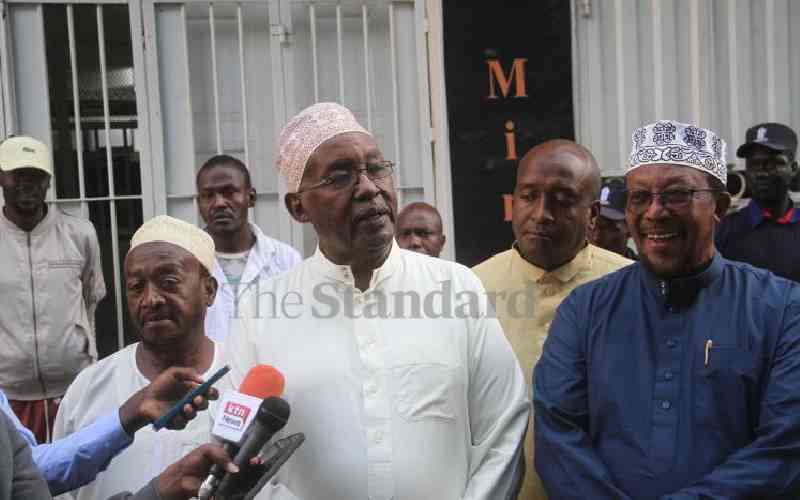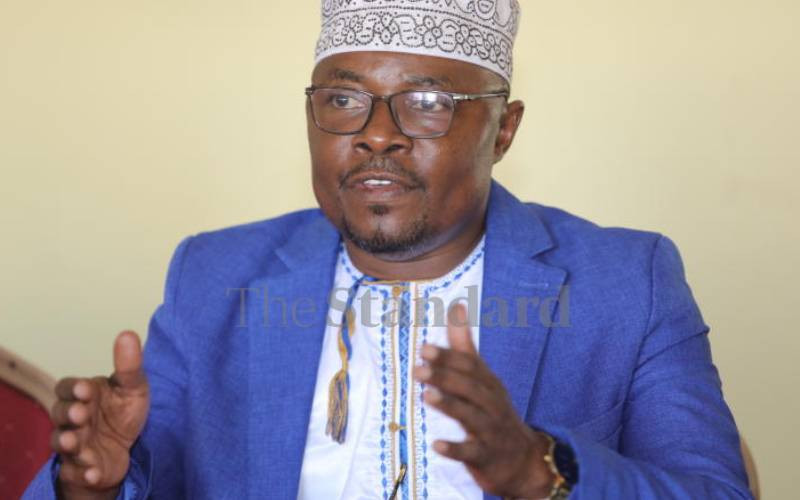By Billow Kerrow
The US film that insults Muslims and their faith reveals their bigotry and double standards on free speech, and is consistent with their negative attitude on Islam. No doubt the film is not about free speech. The UN says it is ‘hateful, malicious, deliberately provocative and portrays a disgracefully distorted image of Muslims’. The US leaders admit as much. Dozens have already died following violent reactions to the movie across the Muslim world.
The US argues that its Constitution protects freedom of speech and it cannot stop such provocative videos. It won’t arrest persons behind such hateful, malicious speeches ostensibly because it cannot curb the right to free speech. Most Western nations share the same view on such matters. Clearly, there is duplicity here because the same free speech is not accorded to those they perceive are opposed to their values.
For instance, several leading Muslim scholars cannot be allowed into the US or UK because of ‘hate speech’. Sheikh Bilal Philips who was turned away at JKIA early this year is not allowed into UK merely because of his anti-gay speech in the past. A Muslim cleric in US cannot make a tape on virtues of Jihad or a speech hateful of other faiths without being accused by the State of terrorism and other charges. Recently, the Russian punks Pussy Riot that held an anti-Putin stunt in a Moscow Cathedral was sentenced to jail for an act that the Russian Orthodox Church described as ‘blasphemy and sacrilege, the conscious and deliberate insult to the sanctuary and a manifestation of hostility to millions of people’. To the US, this was an affront to free speech.
The violence that erupted in the Muslim world is not just about the video but an explosion of frustrations, deep-seated mistrust of the US and its perceived war against Islam under the guise of fighting terrorism. Conscious of this, President Obama took office pledging to improve relations with the Muslim world. Four years later, it is business as usual. His major campaign platform, closure of Guantanamo Bay detention centre, remains a distant mirage.
Freedom of speech enshrined in the Universal declaration of Human Rights is limited by Article 29 that there should be due recognition and respect for the rights and freedoms of others, in addition to meeting the requirements of public morality, public order and general welfare of society. The US does not believe in these declarations any more, yet talks of ‘equal and inalienable rights of all human beings’ as the foundation for freedom, justice and peace.
Article 5 ‘no one shall be subjected to torture or to cruel, inhuman or degrading treatment’ means nothing to them too when dealing with Muslims. Dozens have been renditioned to jails in hidden prisons and subjected to torture as terror suspects. For most, including journalists, it is simply because of a speech or an expression. Article 6 “no one shall be subjected to arbitrary arrest, detention or exile” is the most flouted by the US. At their instigation, we have Kenyans arbitrarily arrested and exiled to Uganda, Somalia and elsewhere.
The US Supreme Court has over the years limited the free speech. The Court will not protect a speech that involves incitement, advocating use of force or violence; false statement of fact, including libel and slander; obscenity, including speech that ‘depicts or describes in a patently offensive way, contemporary community standards’; child pornography; fighting words and offensive speech which when addressed to ordinary citizen is a matter of common knowledge, inherently likely to provoke violent reaction.
From the above, it is clear that if US Government wanted to act on this video, they would be well within the law. But they won’t! It helps them to portray Islam and Muslims as violent religion, and it helps them to cast the anti-terror war far and wide. Unfortunately, their actions continue to make the world less safer and peaceful by the day.
The writer is a former MP for Mandera Central and political economist
 The Standard Group Plc is a
multi-media organization with investments in media platforms spanning newspaper
print operations, television, radio broadcasting, digital and online services. The
Standard Group is recognized as a leading multi-media house in Kenya with a key
influence in matters of national and international interest.
The Standard Group Plc is a
multi-media organization with investments in media platforms spanning newspaper
print operations, television, radio broadcasting, digital and online services. The
Standard Group is recognized as a leading multi-media house in Kenya with a key
influence in matters of national and international interest.
 The Standard Group Plc is a
multi-media organization with investments in media platforms spanning newspaper
print operations, television, radio broadcasting, digital and online services. The
Standard Group is recognized as a leading multi-media house in Kenya with a key
influence in matters of national and international interest.
The Standard Group Plc is a
multi-media organization with investments in media platforms spanning newspaper
print operations, television, radio broadcasting, digital and online services. The
Standard Group is recognized as a leading multi-media house in Kenya with a key
influence in matters of national and international interest.







